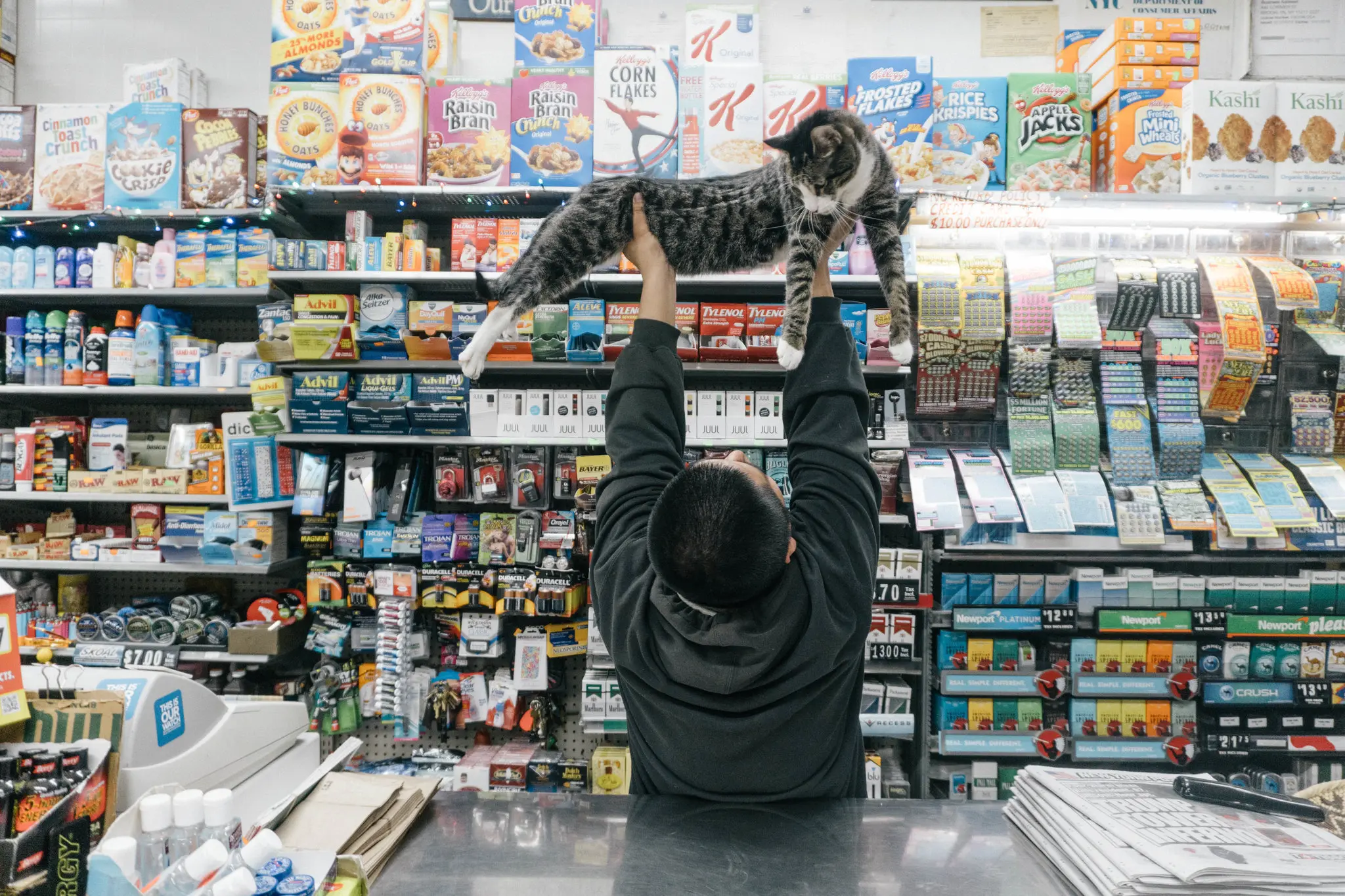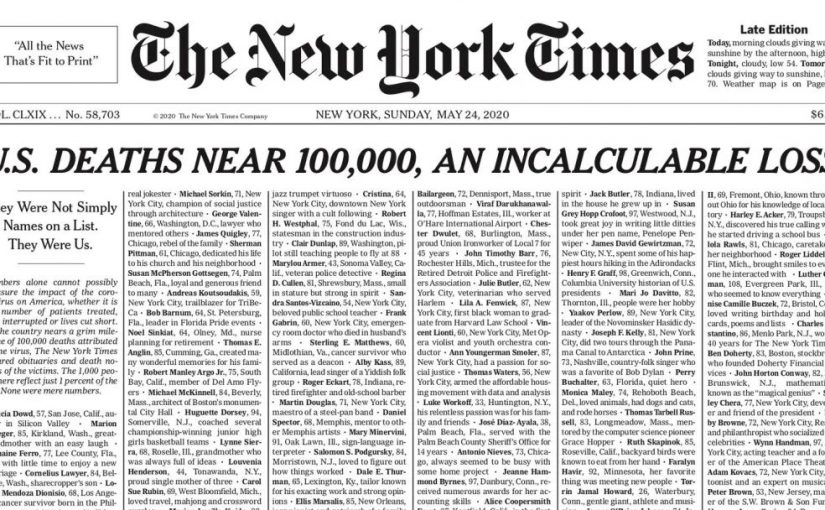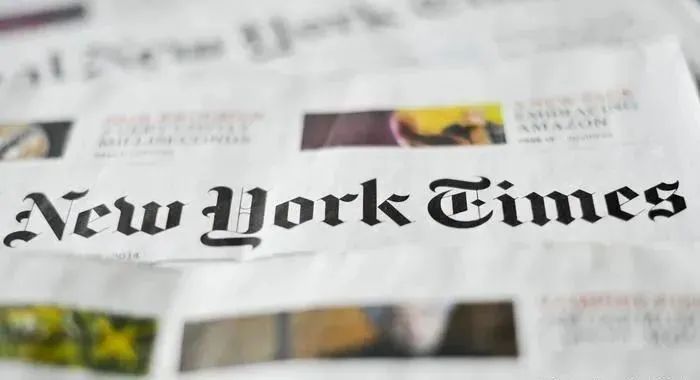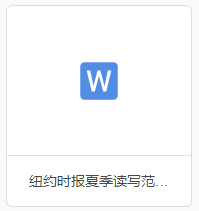拍摄六到八张照片,突出你家乡的一些有趣事物——一群人、一个事件、一个地点或一个视觉主题。
比赛日期:2025 年 12 月 3 日至 2026 年 1 月 14 日
 你住的地方有什么有趣的地方?
你住的地方有什么有趣的地方?
我们知道人们很容易把你的城市、城镇或社区视为理所当然,但在这场比赛中,我们挑战你更仔细地观察,去探索和发现。
例如,本文顶部的图片来自一篇关于纽约市日常生活普通部分——社区熟食店的照片散文。
是什么吸引了你的注意?你可以“走进”哪些地方?对你来说,你的小镇有什么独特或特别的地方?你注意到别人可能看不到的什么?你想深入了解什么?
参加本次比赛,你可以拍摄几乎任何你喜欢的照片,无论是聚焦于某个地点、一个群体、一个事件或传统、某个时间段还是视觉主题。只要展示你所在地区值得关注的项目。
下面是规则和常见问题解答:
通过创作一篇包含六到八张图片的照片专题,突出你所在地区的任何特色,这些图片配有简短的书面介绍和说明每张图片。
你的摄影散文必须包括:
六到八张图片,按你希望观众观看的顺序上传。
每张图片附上简短的说明或说明,帮助解释图片所展示的内容以及为什么这对你想展示的内容很重要。(每个不超过75字。)
一段最多300字的简短介绍,提供背景或背景,解释你的主题,以及为什么对你来说值得重点介绍。(你可以把引言看作文章的开头,随后照片和描述会继续。他们将共同回答诸如这些照片拍摄地点、为何这个主题对你感兴趣以及为何值得被更广泛的观众关注等问题。)
除了上述指南之外,以下是一些其他详细信息:
您必须是 13 至 19 岁的初中或高中学生才能参加,并且所有学生必须获得父母或监护人的许可才能进入。请参阅常见问题部分,了解更多资格详情。
您提交的照片和文字基本上应该是您自己的——它们不应该被抄袭、由他人创建或由AI生成。
一般来说,请将数字操作和后期处理保持在最低限度。(也就是说,您可以使用编辑软件进行细微的校正,例如在暗房中所做的 — 裁剪、调整亮度、平衡颜色等 — 但请不要以任何方式改变照片的真实性。
您的摄影作品应该是本次比赛的原创作品。这意味着它在提交时不应该已经发表,无论是在校报上、为其他比赛还是其他任何地方。
请记住,你提交的作品应该适合时报的读者——也就是说,可以在家庭报纸上发表的东西(所以,请不要说脏话)。
您可以单独、两人一组或最多四名其他学生组成小组参加此挑战,但学生每人只能提交一份参赛作品。
请记住获得您拍摄的人的许可,并收集他们的联系信息。在下面的常见问题解答中了解更多信息。
您还必须提交一份简短、非正式的“艺术家声明”作为提交的一部分,以描述您的流程。这些陈述不会用于选择决赛选手,但有助于我们设计和完善我们的比赛。请参阅 常见问题 了解更多信息。
所有参赛作品必须在太平洋时间 2026 年 1 月 14 日晚上 11:59 之前使用提交表格提交,我们将在比赛开始时添加到本文底部。
免费链接到优秀 Times and Learning Network photo essays,涵盖各种主题,激励你,并附带一些简单的使用步骤。
即将发布的12月1日:一期《问记者》,将邀请一位《纽约时报》摄影师,解答你如何找到有意义的主题并从中创作令人难忘的摄影散文的问题。
我们的比赛评分标准。 这些是我们用来评判本场比赛的标准。请随身携带,确保你的摄影论文符合所有资格。
关于创建摄影随笔竞赛的问题
1.什么是摄影散文?它与照片集有何不同?
摄影散文通过一系列图像讲述一个故事。这些图像协同工作并相互依存,以探索某种主题。例如,“我们在哪里”系列中的摄影散文侧重于社区和成长的主题,但每篇都通过不同的视角。它们共同构成了视觉收藏如何通过阐明“大局”和微小的、有说服力的细节来研究想法的美丽例子。
2.这个比赛与 2023年和2024年The Learning Network举办的关于本地社区的“Where We Are”摄影散文比赛有何不同?
虽然两者都侧重于描绘你的本地环境,但这个比赛允许呈现更广泛的题材。
“Where We Are” 学生们被要求只关注人群社区。在本次比赛中,你可以拍摄几乎任何你喜欢的照片,无论有没有人,正如这些例子所示。
当然,如果你愿意,当然,如果您愿意,您可以完全按照我们在“我们所在之处”活动中要求您所做的来完成本活动任务,因为两个活动的要求基本相同。(但请注意,在“我们所在之处”活动中,我们允许您以最多四人一组的形式完成任务,而本活动则允许您独自完成或与另一名符合条件的学生合作。)
3.我该如何选择一个好的主题呢?
我们的学生意见论坛可以通过许多问题提供帮助,这些问题鼓励您集思广益,召集各种本地线下社区。
你每天看到的是什么,仔细观察后可能比看起来更有趣?
4.我必须给人拍照吗?
不。看看这篇照片论文或这篇,看看你如何专注于一个视觉主题。(注意,第二个例子中确实有少数人出现,但只是远处出现——他们并非作品的焦点。)
5.如果我真的要拍照,需要他们的许可吗?
是的。向你正在拍摄的人解释你为什么要给他们拍照,并口头请求他们的许可,这是一种很好的新闻实践。他们还应该知道,如果您是获胜者,他们的图像和名字可能会出现在网上。
虽然您不必拥有每个参与者的签名许可表,但如果您是获胜者并且我们发布了您的作品,我们将需要能够联系到那些被描绘的人,因此请在拍摄他们的照片之前获取他们的联系信息。(如果您正在拍摄幼儿,这一点尤其重要。首先获得家长或监护人的许可。
一个重要的例外:如果您在公共场所(例如体育赛事或当地集市)拍摄人群的照片,则无需担心权限,因为不可能从所有与会者那里获得权限。
6.我需要采访任何人吗?
这不是强制要求,但如果你拍摄的是人物照片,引用拍摄对象的话语几乎总能为整体作品增添重要色彩或背景信息。若你描绘的是人物,强烈建议在作品中至少加入一段引语。
7.如果我想拍摄的人不想被拍摄,或者他们是某种弱势群体的一部分,该怎么办?
当然,您必须尊重他们的意愿,因为您必须获得您拍摄的每个人的许可。我们鼓励您对您选择的社区保持敏感和深思熟虑,并在开始拍照之前向您将要描绘的人充分解释该项目。在某些情况下,您或许可以拍摄掩盖拍摄对象身份的照片,但这些照片仍然令人回味无穷,有助于讲述故事。(例如,请注意最近这篇关于家庭暴力受害者的文章的顶部图片。
有关更多详细信息,国际记者网络 (International Journalists' Network) 的这些指南可能会有所帮助。(例如,“努力了解你拍摄的人希望如何被代表是很重要的。
_________
关于评审的问题
1.我的摄影作品将如何评判?
您的作品将被《纽约时报》记者以及来自美国各地的 Learning Network 工作人员和教育工作者阅读。我们将使用此评分标准来评判参赛作品。
2.奖品是什么?
在 The Learning Network 上发表您的作品,并有资格被选中在《纽约时报》的印刷版上发表您的作品。
3.何时公布获奖者?
比赛结束大约两个月后。
_________
关于规则的问题
1.谁有资格参加本次比赛?
该比赛面向世界各地的 13 至 19 岁初中或高中学生。大学生不能提交参赛作品。但是,正在参加一门或多门大学课程的高中生(包括高中研究生)可以参加。在魁北克省参加两年制 CEGEP 第一年的学生也可以参加。此外,19 岁或以下已完成高中学业但正在休学年或未上大学的学生可以参加。
《纽约时报》员工的子女和继子女没有资格参加本次比赛。与这些员工住在同一家庭的学生也不是。
2.为什么你们要要求提供关于我们流程的艺术家声明?您将用它做什么?
我们所有在 The Learning Network 工作的人都曾是教师。现在我们在新闻编辑室而不是课堂上工作,我们错过的许多事情之一是能够实时看到学生对我们的 “作业” 的反应——并提供帮助或调整,以使这些作业变得更好。我们要求您反思您做了什么以及为什么,以及其中的困难或容易之处,这在很大程度上是为了改进我们的比赛和我们为支持它们而创建的课程。
另一个原因?我们从许多老师那里听说,写下这些陈述对学生有很大帮助。从作品中退后一步,试着用语言表达你想表达的东西,以及你为什么以及如何做出艺术选择来做到这一点,可以帮助你重新看待你的作品并弄清楚如何让它更强大。对于我们的员工来说,他们提供了重要的背景信息,帮助我们了解个别学生和提交的作品,并更多地了解世界各地学生创作的条件。
3.如果我对本次比赛有疑问或在提交参赛作品时遇到问题,可以联系谁?
了解更多赛事详情、提交问题,均可扫码添加顾问老师咨询







